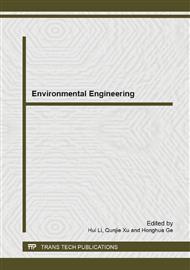p.1078
p.1083
p.1087
p.1091
p.1097
p.1101
p.1106
p.1111
p.1116
Evaluation of Sustainable Development Based on Emergy Energy Footprint: A Case Study of the Jing-Jin-Ji Region, China
Abstract:
This study evaluated the sustainability of Jing-Jin-Ji Region by exploiting as emergy tool for transforming the consumption to the land area appropriated, and analyzed the development level by attempting to integrate with human development index. The result showed that emergy energy footprint per capita in the Jing-Jin-Ji region has increased from from 5.6917 hm2 to 10.5596 hm2 within the past ten years at an average growth of 9.50% annually, appearing unsustainability. It was also demonstrated that the energy deficit , energy footprint itensify and energy pressure index were presented to depict severe insecurity of the ecological system. And the value of human development index in the region were higher than the corresponding nationwide average value, indicating a certain degree development of society and economy. The study would provide the foundation for regional sustainable development research in similar area.
Info:
Periodical:
Pages:
1097-1100
Citation:
Online since:
December 2013
Authors:
Price:
Сopyright:
© 2014 Trans Tech Publications Ltd. All Rights Reserved
Share:
Citation:


